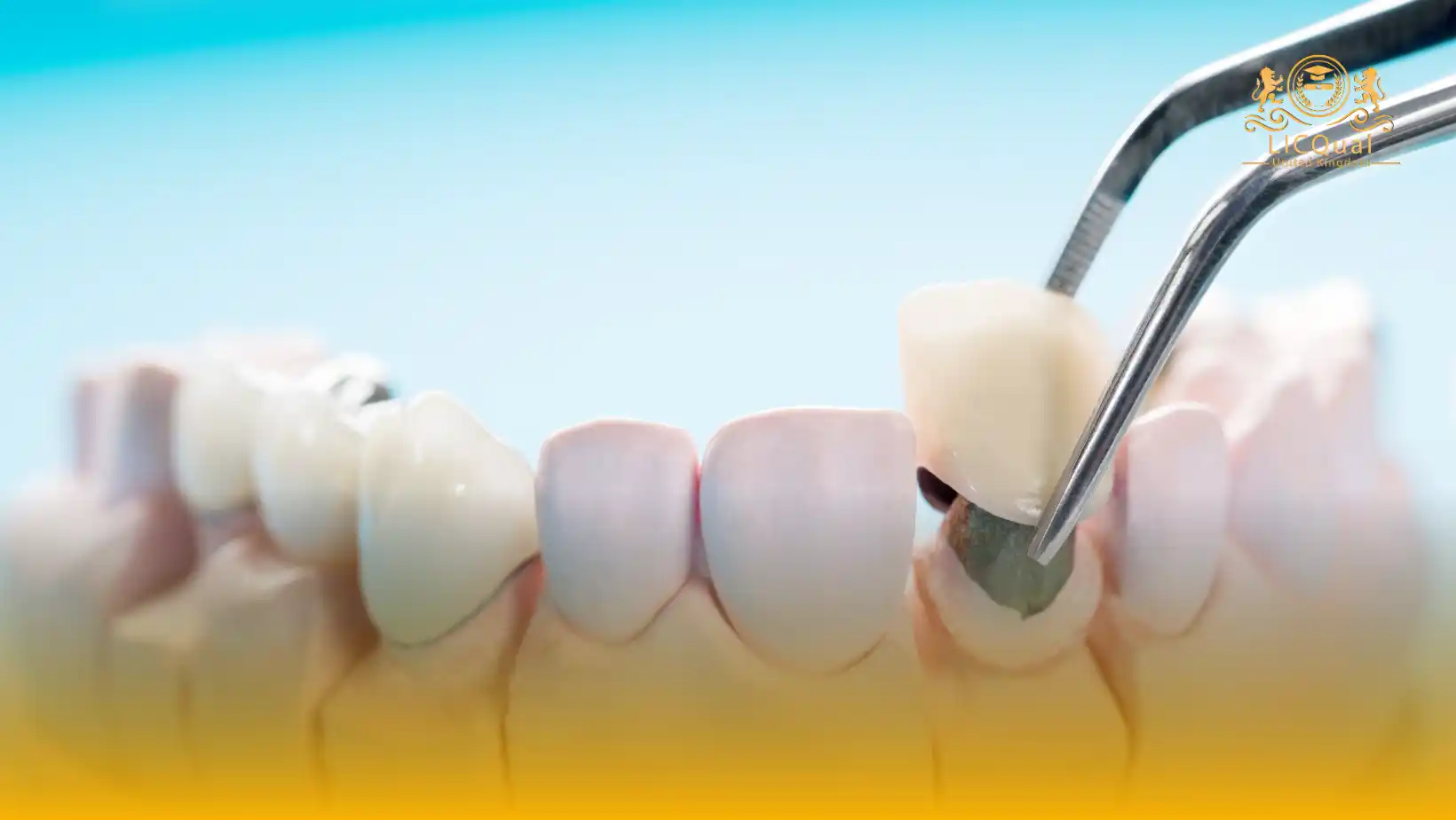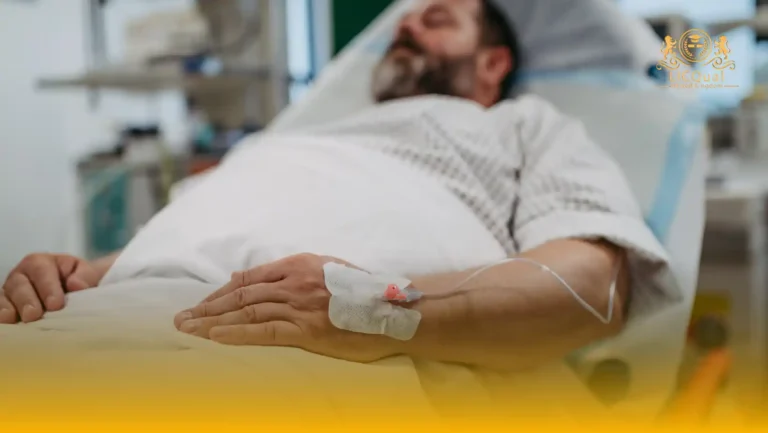The LICQual Level 6 Diploma in Prosthodontics (Dip Prosthodontics) is a specialised qualification designed for dental professionals seeking to advance their expertise in prosthodontic practice. This qualification is not intended for fresh candidates; it is specifically aimed at practitioners who wish to enhance their career prospects, expand their clinical knowledge, and strengthen their Continuing Professional Development (CPD).
Learners undertaking this diploma will gain in-depth knowledge of prosthodontic principles, including the design, fabrication, and fitting of dental prostheses. The programme combines theoretical understanding with practical application, enabling learners to manage complex prosthodontic cases, implement advanced treatment planning, and achieve optimal patient outcomes.
Centres delivering the LICQual Level 6 Diploma in Prosthodontics are required to maintain high standards of teaching and clinical excellence. This includes employing competent and qualified staff, providing access to all necessary materials and resources, and fostering a supportive learning environment. Such measures ensure learners receive the guidance, supervision, and practical experience required to succeed.
By completing this diploma, learners can significantly enhance their professional profile, demonstrate advanced skills in prosthodontics, and strengthen their role within the dental industry. Whether aiming for career progression, advanced clinical practice, or the enhancement of CPD portfolios, this qualification provides a structured and rigorous pathway for committed dental professionals seeking excellence in prosthodontic care.
Course Overview
Qualification Title
LICQual Level 6 Diploma in Prosthodontics (Dip Prosthodontics)
Total Units
6
Total Credits
120
GLH
480
Qualification #
LICQ2200674
Qualification Specification
To enroll in the LICQual Level 6 Diploma in Prosthodontics (Dip Prosthodontics) , applicants must meet the following criteria:
|
Qualification# |
Unit Title |
Credits |
GLH |
|---|---|---|---|
|
LICQ2200674-1 |
Advanced Prosthodontic Principles |
20 |
80 |
|
LICQ2200674-2 |
Clinical Assessment and Diagnosis in Prosthodontics |
20 |
80 |
|
LICQ2200674-3 |
Prosthodontic Treatment Techniques |
20 |
80 |
|
LICQ2200674-4 |
Patient Management and Professional Ethics |
20 |
80 |
|
LICQ2200674-5 |
Research Methods in Prosthodontics |
20 |
80 |
|
LICQ2200674-6 |
Advanced Clinical Practice and Case Management |
20 |
80 |
By the end of this course, learners will be able to:
Unit 1: Advanced Prosthodontic Principles
By the end of this unit, learners will be able to:
- Demonstrate advanced knowledge of dental anatomy, occlusion, and materials science relevant to prosthodontics.
- Analyse prosthodontic principles to inform treatment planning.
- Identify factors affecting the success of restorative and prosthodontic treatments.
- Apply theoretical knowledge to support clinical decision-making in prosthodontics.
Unit 2: Clinical Assessment and Diagnosis in Prosthodontics
By the end of this unit, learners will be able to:
- Conduct comprehensive patient assessments, including diagnostic records and radiographic analysis.
- Formulate evidence-based prosthodontic treatment plans.
- Recognise complex prosthodontic cases and determine appropriate management strategies.
- Apply advanced diagnostic techniques to support patient care.
Unit 3: Prosthodontic Treatment Techniques
By the end of this unit, learners will be able to:
- Demonstrate knowledge of fixed, removable, and implant-supported prostheses.
- Apply advanced restorative and prosthodontic techniques in clinical practice.
- Evaluate treatment options based on patient-specific needs and clinical evidence.
- Manage complications and adapt treatment plans effectively.
Unit 4: Patient Management and Professional Ethics
By the end of this unit, learners will be able to:
- Communicate effectively with patients regarding treatment options and outcomes.
- Obtain valid informed consent and maintain patient confidentiality.
- Apply ethical principles and professional standards in prosthodontic practice.
- Manage patients with complex clinical needs in a safe and professional manner.
Unit 5: Research Methods in Prosthodontics
By the end of this unit, learners will be able to:
- Critically appraise research and scientific literature in prosthodontics.
- Integrate evidence-based principles into clinical decision-making.
- Conduct clinical audits or small-scale research projects to improve patient care.
- Apply research findings to enhance professional practice and treatment outcomes.
Unit 6: Advanced Clinical Practice and Case Management
By the end of this unit, learners will be able to:
- Plan and implement treatment for complex prosthodontic cases under supervision.
- Evaluate treatment outcomes and refine strategies for improved patient care.
- Reflect critically on clinical practice to support continuous professional development.
- Demonstrate competency in advanced case management, ensuring patient safety and high-quality results.
The LICQual Level 6 Diploma in Prosthodontics (Dip Prosthodontics) is tailored for dental professionals at different stages of their careers who want to gain advanced expertise in restorative dentistry and prosthetic treatments. This UK-accredited prosthodontics diploma is ideal for dentists seeking specialization, international recognition, and career advancement through flexible, high-quality training.
1. Practicing Dentists Seeking Specialization
- Dentists aiming to specialize in prosthodontics and restorative dentistry
- Professionals who want to expand their treatment portfolio with advanced prosthetic solutions
- Those looking to increase patient satisfaction through high-quality restorative care
- Dentists seeking a structured pathway to postgraduate-level expertise
- Practitioners who want to stand out in a competitive dental market
2. International Dentists Looking for UK Accreditation
- Overseas dentists seeking a globally recognized prosthodontics diploma
- Professionals aiming to enhance their qualifications for international practice
- Dentists who want to meet UK and EU dental education standards
- Candidates looking for a flexible online prosthodontics course with certification
- Those who want to boost career opportunities abroad
3. Recent Dental Graduates
- Graduates eager to specialize early in their careers
- Students looking for a prosthodontics postgraduate diploma to strengthen their CV
- Young professionals seeking advanced clinical exposure in prosthetics
- Those who want to bridge the gap between academic learning and clinical practice
- Graduates aiming for higher earning potential through specialization
4. Dental Professionals Seeking Career Advancement
- Dentists aiming for leadership roles in clinics or hospitals
- Professionals who want to attract more patients with specialized services
- Those seeking to increase their professional credibility with a Level 6 qualification
- Dentists looking to transition into teaching or academic roles
- Practitioners aiming to future-proof their careers with advanced training
5. Busy Professionals Needing Flexible Learning
- Dentists balancing clinical practice with further education
- Professionals seeking an online prosthodontics diploma with certification
- Learners who prefer self-paced study with guided clinical practice
- Those who want to avoid career breaks while studying
- Dentists looking for affordable yet accredited prosthodontics training
6. Dental Clinics and Practice Owners
- Practice owners wanting to expand services with prosthodontics expertise
- Clinics aiming to train in-house dentists for advanced restorative treatments
- Professionals seeking to increase clinic revenue through specialized care
- Owners who want to enhance their clinic’s reputation with accredited qualifications
- Teams looking for structured, CPD-accredited prosthodontics training
7. Lifelong Learners in Dentistry
- Dentists passionate about continuous professional development (CPD)
- Professionals who want to stay updated with the latest prosthodontic techniques
- Learners seeking evidence-based, research-driven training
- Those who value academic growth alongside clinical expertise
- Dentists committed to delivering excellence in patient care
To ensure high-quality delivery and learner success, centres offering the LICQual Level 6 Diploma in Prosthodontics must meet the following requirements:
- Qualified and Competent Staff: Centres must employ experienced dental professionals with recognised prosthodontic qualifications and teaching experience to deliver both theoretical and practical components.
- Clinical Facilities: Learners must have access to a fully equipped dental practice or clinic with appropriate prosthodontic instruments, materials, and technologies.
- Learning Resources: Centres should provide comprehensive learning materials, including textbooks, digital content, case studies, and access to current research in prosthodontics.
- Assessment and Quality Assurance: Centres must implement robust assessment procedures, quality assurance systems, and regular monitoring to maintain high academic and clinical standards.
- Health and Safety Compliance: All clinical environments must adhere to UK health and safety regulations, infection control standards, and professional clinical guidelines.
- Supportive Learning Environment: Centres should offer guidance, supervision, and mentoring to ensure learners achieve the intended learning outcomes.
- CPD and Professional Development Support: Centres should encourage continuous professional development for both staff and learners to maintain excellence in prosthodontic education.
By meeting these requirements, centres can deliver a high-quality, internationally recognised prosthodontics qualification, ensuring learners gain the advanced skills, knowledge, and professional competencies required for successful career progression.
Assessment and Verification
All units within this qualification are subject to internal assessment by the approved centre and external verification by LICQual. The qualification follows a criterion-referenced assessment approach, ensuring that learners meet all specified learning outcomes.
To achieve a ‘Pass’ in any unit, learners must provide valid, sufficient, and authentic evidence demonstrating their attainment of all learning outcomes and compliance with the prescribed assessment criteria. The Assessor is responsible for evaluating the evidence and determining whether the learner has successfully met the required standards.
Assessors must maintain a clear and comprehensive audit trail, documenting the basis for their assessment decisions to ensure transparency, consistency, and compliance with quality assurance requirements.







